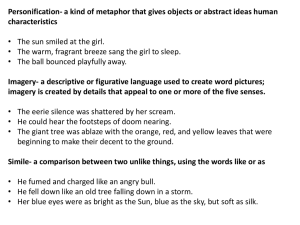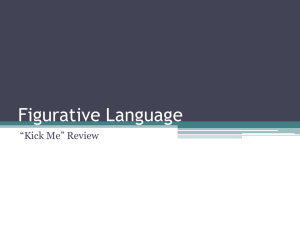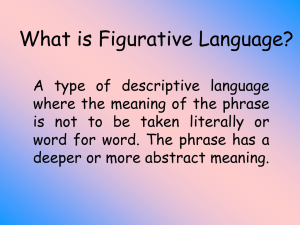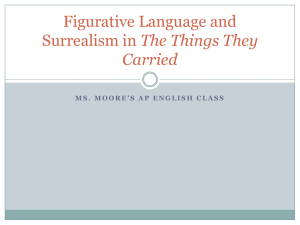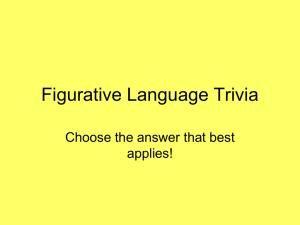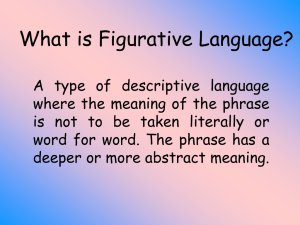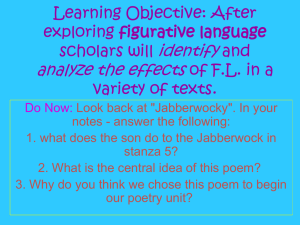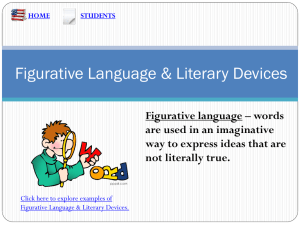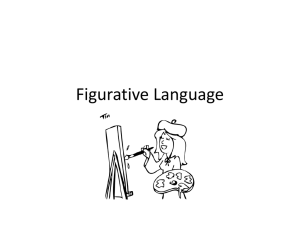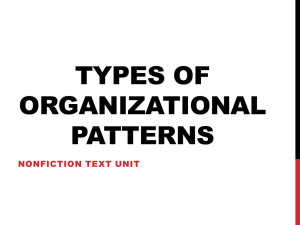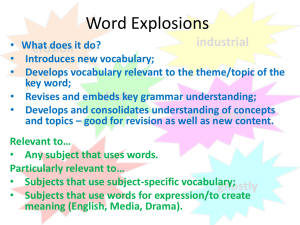figurative language power point
advertisement
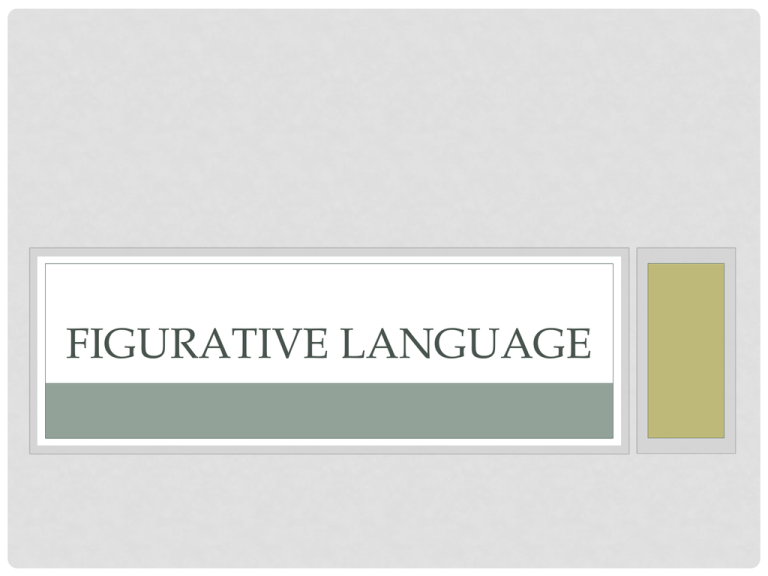
FIGURATIVE LANGUAGE WHY USE FIGURATIVE LANGUAGE? • It makes my writing interesting. • It is a way to “show”, which is better than “tell”. • It creates a vivid picture in the reader’s mind. WHY UNDERSTAND FIGURATIVE LANGUAGE? • • • • Improves my reading comprehension. Helps me understand the progression of plot. Helps me understand the motives of characters. Requires me to draw inferences – so gives me practice with this skill. HOW CAN WE UNDERSTAND FIGURATIVE LANGUAGE? • I must know the difference between the literal meaning of figurative language and the figurative meaning of figurative language. • Literal Meaning: What it means if I accept it at face value – what it says “right there”… • Figurative Meaning: What it means when I explore how the author is using the figurative language; what the author is trying to say about an event, setting, or character. SIMILE Definition: Figure of speech where two unlike things are compared using like or as. Example: My brother is as loud as a police siren. Literal meaning: When Matt’s brother opens his mouth, we hear a loud siren wailing. Figurative meaning: Very, very, very loud. METAPHOR Definition: Figure of speech where one thing is referred to as if it were another; comparison of two unlike things Difference between simile and metaphor: Metaphor does not use like, as. Metaphor: • Example: My arm is a soggy waffle. • Example: Mrs. Hynes is a bear today. • Example: The snow was the cool delicious milk in my cereal bowl. • Example: Life is a broken-winged bird that cannot fly. PERSONIFICATION • Definition: A type of figurative language where a nonhuman subject is given a human characteristic. • Example: Sorrow knocked on my door, but I was afraid to answer. • Example: Trees danced in the wind. IDIOM Definition: Expression that has a meaning particular to a language or region Example: Break a leg. Literal meaning: Right there meaning – break your leg. Figurative meaning: Good luck. OTHER IDIOMS • They’re dropping like flies. • Face the music. • Pull out all the stops.

